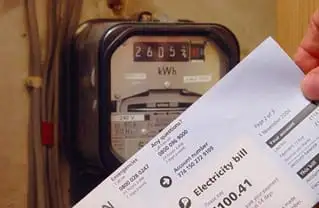Power plant idea counts on big break
By Knight Ridder Tribune
NFPA 70e Training
Our customized live online or in‑person group training can be delivered to your staff at your location.

- Live Online
- 6 hours Instructor-led
- Group Training Available
The developer, who rebuilt the Mac-Kay building a few years ago and talks of building a power plant in the Palmer fairgrounds too, said he could have the Knik Arm Power Plant near Ship Creek generating power and heat for local buildings by 2010. But that's only if the city will let him avoid paying taxes on the property for the next 10 years and lets him defer tax payments for the five years after that.
How much would he save? Marlow said it depends on what kind of contract he could get with a power utility - he plans to negotiate with Chugach Electric Association - to buy the electricity.
The city's chief financial officer, Jeff Sinz, said that according to Marlow's own estimates, the tax exemption could save him $3.8 million over 10 years. Sinz said the tax deferral could save Marlow up to another $2.2 million, according to the d velopers' numbers. Typically, when one person doesn't have to pay property taxes, it means other people cover the bill. It's up to the Assembly to decide if a tax exemption for Marlow make sense for the city.
"The special tax treatment being requested could be viewed as an investment being made by the taxpayers of the municipality," Sinz said. Marlow says his project will only save people money over time because it would boost development and property values in Ship Creek.
"For the average taxpayer, this exemption will actually lower their tax bill, lower their electric energy rates," he said.
The power plant was built more than 50 years ago as a coal-fired plant, and it last produced electricity in the mid-1980s. Marlow bought it in 1999, and he's been trying to fire it back up ever since. It is considered a "deteriorated property" by the city. That means it's eligible for a special tax break for someone who plans to spruce it up. Marlow's tax request first went to Sinz. But Sinz said the financial plans and paperwork Marlow gave him are incomplete and don't give enough information to tell if the project would be a good deal for the city.
As a result, he declined to recommend to the Assembly or mayor whether Marlow should get the exemption. Now, Marlow - who says Sinz is asking too much - is taking his case directly to the Assembly. He says he knows how the tax exemption is supposed to work because he's the one who lobbied for the laws that make it possible. "I wrote the law. I walked it to Juneau, I got it passed," he told Assembly members at a meeting last week. In Anchorage, the Assembly can label a property as "deteriorated" - and eligible for tax breaks - if it has been condemned, if there are old buildings on it that have been demolished or if it is "in a deteriorating or deteriorated area," according to ity code.
Only two properties have ever received such a tax break. The first was another Marlow project: Redevelopment of the old MacKay building downtown. Once infamous for being ugly and empty, the building is now an apartment house called McKinley Tower. The Assembly approved the second tax break, requested by Cook Inlet Housing Authority, in May. It exempts property taxes on a new 80-unit housing development in Muldoon for 10 years. The exemption is worth an estimated $506,000 in taxes, according to the city. Assembly members who voted for it said it would help offer more low-income housing in Anchorage and redevelop a former trailer park.
Only Assembly vice chair Debbie Ossiander, who represents Chugiak and Eagle River, voted against the break. She said that by the time the exemption passed, the property was no longer a trailer court and that she didn't think it was "deteriorated" anymore. She said she's hesitant to cut taxes for Marlow's project too. "If you reduce somebody's property tax, everybody else has to pay for it, at some point."
The power plant project is in downtown Assemblyman Allan Tesche's district. Tesche said that he wants to hear more from Marlow and from Sinz, but said: "I want to see that building used productively, in some fashion, and I want to see it on the tax rolls worth a lot more." "I want to see it rebuilt for some useful purpose," Tesche said.
The power plant has been dormant since 1985, Marlow said. He plans to restart it as a 130-megawatt, gas-fired power plant. Heat generated by the plant could be piped to other buildings and used, for example, to heat the McKinley Tower, he said. As for who might buy all the electricity, a state regulatory commission recently told Chugach Electric that it has to start negotiations with Marlow whether it wants to or not. "What we're interested in is providing low cost power to customers, so we're certainly willing to listen," said Chugach spokesman Phil Steyer.











